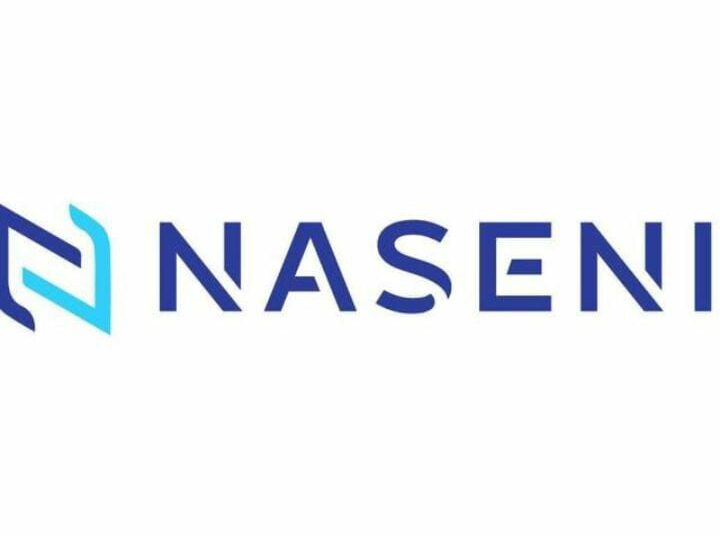Since its establishment in 1992, the National Agency for Science and Engineering Infrastructure (NASENI) has put Nigeria on the path of industrialization and self-reliance through scientific inventions and technological breakthroughs that have shaped the nation’s transformation. Judging by its mandate and scope of operation, NASENI is Nigeria’s only purpose-built agency designed to conduct developmental work in manufacturing. Over the years, it has demonstrated the capability to coordinate the proliferation of technologies developed within or outside its centres, including patents obtained. NASENI has ensured that technologies developed in the areas of spares, components and systems engineering are transferred to entrepreneurs for the production of goods and services.
NASENI has strengthened its resolve under the Renewed Hope Agenda of President Bola Tinubu to bring new dimensions to Nigeria’s industrial development. Recently, the agency launched the ambitious Innovation Hub tailored to foster local innovation among talented youth to drive industrialization, create jobs and reduce reliance on foreign products.
The launch of the Innovation Hub also supports Nigerian innovators with mentorship. A component part of it is the InnovateNaija Challenge, developed in partnership with AfriLabs, which aims to bridge the support gap for young innovators, help commercialize their technologies, and drive Nigeria’s industrialization and economic growth. The development of indigenous, technologically advanced products has the potential to open up export opportunities, helping Nigeria to earn foreign exchange and participate in the African Continental Free Trade Area (AfCFTA).
NASENI also gave residents of the Federal Capital Territory (FCT), Abuja, an opportunity to access compressed natural gas (CNG) at affordable prices and premium availability when it collaborated with Portland Gas Limited to launch the Auto Compressed Natural Gas Daughter Station in Kubwa, Abuja, as part of measures to accelerate the drive toward energy security in Nigeria.
This was one of many policy responses of NASENI and its partners to deepen the transition to CNG, an initiative of President Bola Tinubu’s government to cushion the impact of fuel subsidy removal through cheaper gas.
In a related development, NASENI opened another channel of collaboration with Imose Technologies Ltd to boost domestic computer manufacturing; it is aimed at launching locally-made laptops and tablets under the NASENI brand.
The goal is to reduce reliance on imported electronics, enhance technological self-sufficiency, and create jobs. NASENI provides infrastructure and policy support, while Imose handles manufacturing, focusing on collaboration, creation and commercialization to establish Nigeria as a regional technology hub.
NASENI also entered into a partnership with the Abuja Technology Village (ATV), a 300-hectare science and technology park in the Nigerian capital that serves as a hub for innovation, research and manufacturing, fostering industrial growth and technology transfer.
NASENI partnered with ATV to develop its designated land into facilities for technology firms, manufacturing plants and research institutions, aiming to accelerate the commercialization of Nigerian innovations and boost economic transformation by attracting both Nigerian and foreign investors.
Through large-scale research and development efforts, NASENI last year developed 35 market-viable products that are now being commercialized in collaboration with ATV. These innovations will be improved upon for the mutual benefit of the partnership as shared goals.
The ATV will not only integrate science, innovation and technology with a focus on supporting local talents and products but will also serve as a base to empower youth, foster innovation and drive the development of a $1 trillion tech-driven economy.
This strategic move by NASENI ensures that the country is not left behind in the much-touted Fourth Industrial Revolution, where artificial intelligence, the internet of things and all modern technologies shaping the global arena are domiciled.
NASENI is investing heavily in Nigeria’s sustainable climate action to boost the green economy as encapsulated in the doctrine of development and industrialization in line with President Bola Tinubu’s dedication to forging a paradigm shift in which climate action and economic growth advance together.
NASENI’s ongoing projects range from renewable energy—assembling and distributing solar home systems, producing solar panels and lamps locally, and promoting access to clean power—to clean cooking solutions that provide energy for cooking through Powerstove Limited, producing clean cook-stoves and biomass pellets to reduce carbon emissions, improve public health, and unlock carbon credit opportunities.
NASENI entered into collaboration with the government of the Czech Republic to disburse a total of $21.7 million to 11 selected beneficiaries of the Delta-2 projects to commence the implementation of technology transfer initiatives to Nigeria. The Delta-2 programme is the cooperation model of the Technology Agency of the Czech Republic (TA CR) through which TA CR sponsors applied research and innovation of manufacturing companies and innovative institutions. Launched in 2021, the Delta-2 programme funds and enables research, development and innovation projects in three focus areas: agriculture, mining, and general manufacturing for SMEs.
The introduction of NASENI’s solar-powered irrigation pump has revolutionized agriculture by improving crop production. Nigerian farmers now benefit in diverse ways from this cost-effective pump that provides a sustainable and reliable source of water for crops. Farmers can use the solar irrigation pump to irrigate their crops more consistently, leading to higher yields and potentially multiple harvests per year.
It makes farmers less dependent on unpredictable rainfall patterns, thus mitigating the risks of crop failure. It eliminates the need for fossil fuels like diesel or petrol for irrigation, reducing greenhouse gas emissions and air pollution. It can also be used in areas without reliable grid access. By using the NASENI solar irrigation pump, farmers significantly increase agricultural productivity, lower operational costs, and achieve higher incomes and improved livelihoods compared to petrol-powered irrigation pumps.
For this consistent commitment to advancing Nigerian industrialization and shaping the nation’s future through self-sufficiency, NASENI is LEADERSHIP Company of the Year 2025.





